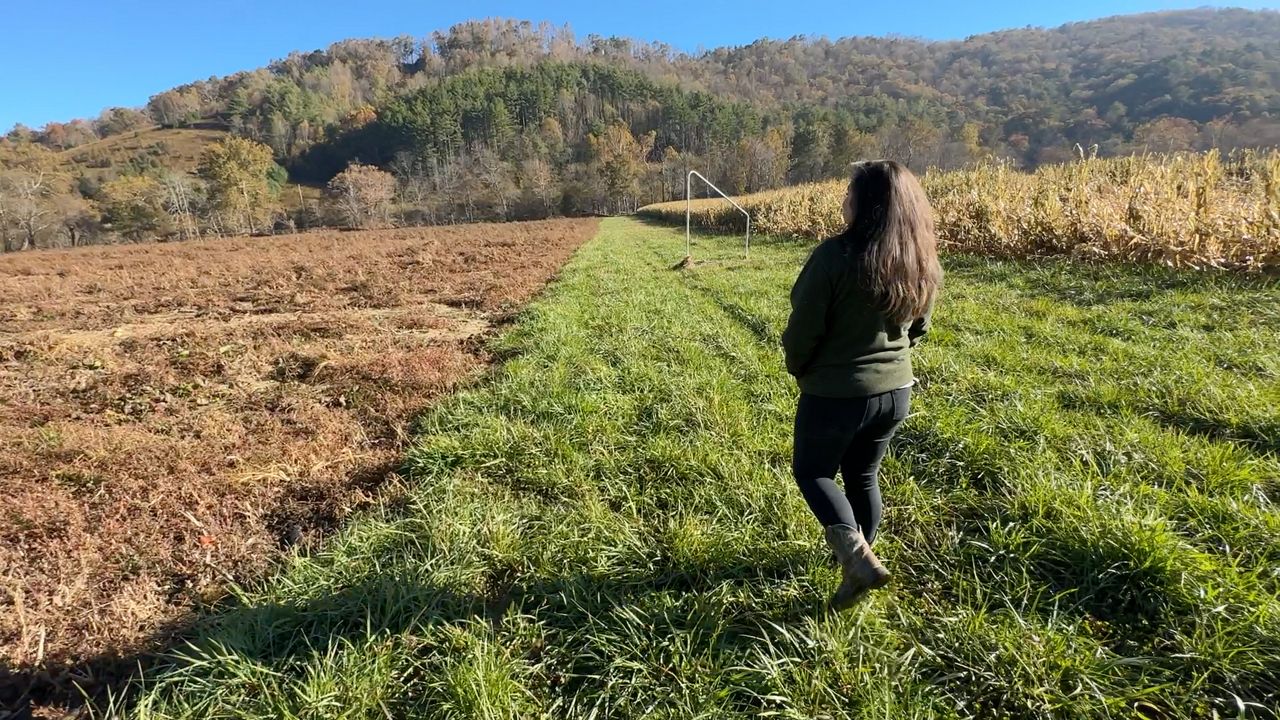LUMBERTON, N.C. — For over a century, the Lumbee Indian tribe has been fighting to get federal recognition. It believes 2020 may be the year it finally happens.
The Lumbee tribe calls Robeson County home. Sitting near the border of South Carolina, this is the region of the state the Lumbee River runs through. It is also where the largest tribe in North Carolina lives.
But size doesn't matter in the battle for federal recognition.
“It's basically for dignity and respect,” says Chair Harvey Godwin. “We've been pursing it since 1888.”
A century of work
The work to earn this acknowledgment began over a century ago. Godwin's own great-grandfather was among the original petitioners for the recognition. Today, the leader of the Lumbee tribe has taken on the fight himself.
“The Lumbee have been reviewed seven times by the administration through the Department of Interior,” Godwin says. “And there has been 13 reports generated by Congress over 100 years.”
The federal process for recognition has evolved throughout the decades. At times, it was as degrading as measuring heads or seeking blood samples to see how much “Indian blood” you had, now Godwin says the road to recognition is much different.
“So it comes down to politics,” he says.
The politics of recognition
That is where Congress plays a role. For the Lumbee, this issue of recognition is likely to be decided by the vote of lawmakers. That debate has now been going on for decades.
“I think the Lumbees have a good strong case,” then Rep. Charles Taylor, a Republican from North Carolina, said on the U.S. House floor in 1993.
But the issue would never make it through the full legislative process.
The current Congress has brought the issue back up, and Godwin testified last December in support of the recognition.
“I'm the 19th Lumbee tribe leader to come before Congress for justice and equal treatment,” he said then. “And I hope that my children and grandchildren won't be here in the future doing the same thing I am doing today.”
But Godwin believes he may have gotten the shift in momentum he needed this fall. In a decidedly divisive political season, N.C. was a battleground state for the presidential race, and both candidates weighed in on the issue.
Presidential candidate Joe Biden said:
“Six decades ago, Congress recognized the Lumbee Tribe but denied it the benefits that all other federally recognized tribes receive. It is past time for the federal government to rectify this injustice and fully recognize the Lumbee tribe, providing it with the critical resources it needs to prosper.”
President Donald Trump also weighed in, saying:
“For more than a century, the Lumbee Tribe of North Carolina has sought federal recognition, but has been met with indifference and red tape... Lumbee Nation is forgotten no more!”
With these assertions, the Lumbee threw its support behind President Trump's re-election.
"And in America when you vote for someone and they tell you they are going to do something, you do your part,” Godwin says.
The momentum continued, as the lame duck session convened in November. The very first bill up for consideration was to grant this recognition.
“Most importantly the bill will establish once and for all the Lumbee Tribe as an independent and sovereign entity under federal law,” said Rep. G.K. Butterfield, a democrat from N.C.-01 during the floor debate.
It ended up being a unanimous vote of approval on the house floor.
But supporters know there is still opposition to final approval.
“For opponents of Lumbee Indians, including other tribes, it has always been about the money,” says Rep. Dan Bishop, a Republican from N.C.-09. “And, of course, there have been fellow travelers that have been motivated by racial motivators or neglect.”
Opposition to recognition
The most vocal opposition has come from the Eastern Band of Cherokee Indians, the only federal recognized tribe in North Carolina.
“We believe that most Lumbees today cannot demonstrate any native ancestry at all,” EBCI Chief Richard Sneed said while testifying before Congress in 2019.
Sneed points out there is a process for a federal recognition, through the Department of Interior, and says until then these “tribes” should have to wait.
“You said there are tribes all over the country, I don't call them tribes,” Sneed says. “They're groups. And until they pass the criteria of the Office of Federal Acknowledgment, they are a group.”
The Eastern Band of Cherokee Indians sit on the Qualla Boundary in Swain and Jackson counties. Their history has been long acknowledged. As the Lumbee's mission gained traction this fall, the EBCI sent a letter to Congressional leaders that said in part:
“Instead of demonstrating credible ties to historic tribes, they abandon one claim for another when challenges to their identity are asserted.”
Sneed says he believes many Americans would agree with his position. He points to the cost, which is estimated to be about a billion dollars over the next five years, and to the autonomy that it allows.
“Purely from a United States citizen perspective, every American taxpayer should want every group that says that they are a historic tribe to go through the process. What we saw happening this election cycle was purely politics.”
Ready for change
Back in Robeson County, the Lumbee say they have had plenty of successes, but with recognition could thrive at a whole new level.
“On the face of it, life would remain the same. But there would be more opportunity to improve quality of life. It would change the grant writing process. Our staff is so great at writing grants. But so many times we go down the line of applying for grants, 'OK you are a tribe, are you fully recognized?' You check the box 'no' and then you don't qualify.”
For Godwin, he says after over a century of waiting and working toward the goal of recognition, he believes it is time to make it a reality.
“There are about 600 tribes in America that are federally recognized. But not many have been scrutinized or studied or analyzed like the Lumbee,” Godwin says. “So what I would say to our deterrents is that the time is now to end this, and to let the Lumbee tribe sit with the other sister tribes in America.”
The U.S. Senate has not yet scheduled a vote on this issue.









